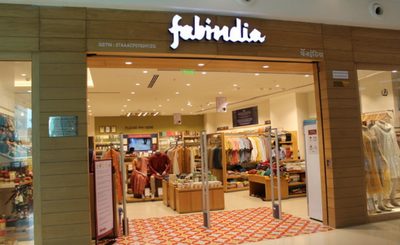Amazon shutting down wholesale distribution in third business exit in India
Amazon is closing its wholesale distribution operation in India, the latest in a string of withdrawals in the crucial international market where it has invested over $7 billion over the past ten years. The American e-commerce behemoth announced on Monday that it is ending Amazon Distribution, a wholesale website that served local small businesses in Bengaluru, Mysore, and Hubli. We don’t make these choices randomly. To take care of our current partners and clients, we are phasing out this programme, a business representative stated in a statement. The goal of Amazon Distribution was to make it easier for kiranas, or Indian neighbourhood shops, pharmacies, and department stores, to obtain merchandise from the online retailer. The service will end at an unspecified time, according to the corporation.
“We provide a vast selection of products at affordable pricing, along with the ease of next-day delivery to your door. The company says on its website: “As a member, you can buy thousands of items for resale at any time of the day at competitive prices and in bulk quantities, pay using the different payment options available, get a GST bill for your order, and convenient and dependable door-step deliveries the following day. Amazon did not provide a reason for terminating its wholesale distribution service. Still, this action comes after the corporation closed its food delivery and Academy online education platforms in the nation as part of a global corporate restructuring.
Academy, a platform for online learning and food delivery, operates nationwide while undertaking a global business restructuring. According to media estimates, Amazon plans to eliminate 10,000 positions. Roles in several areas, such as devices and services, have already been eliminated this month. Some parts will also be eliminated due to the closure of the aforementioned Indian companies.
Andy Jassy, the CEO of Amazon, forewarned staff in a note that the company will make additional layoffs in 2018.
Despite this, many believe that Amazon, which has invested over $6.5 billion in its local company in India, is gradually pulling back its operations in the South Asian market due to the recent statements made there. Several of the company’s senior executives have left in recent months. Amazon’s primary international market is India, but it also confronts fierce rivalry from rivals with significant financial backing. According to a current assessment by Sanford C. Bernstein, Amazon is falling behind Walmart’s Flipkart and finding it difficult to gain traction in smaller Indian cities and villages. According to the analysts’ assessment of clients, Amazon’s 2021 gross merchandise value in the country will be between $18 billion and $20 billion, falling short of Flipkart’s $23 billion.
Amazon is also battling against Reliance Retail, the largest retailer in India and one of Mukesh Ambani’s businesses, as well as the social commerce companies Meesho and DealShare, all of which have funding from SoftBank. According to Bernstein analysts, Amazon has provided “a poorer proposition in ‘new’ commerce” in the nation.
One of the world’s last major growth markets is in jeopardy. By 2025, it is anticipated that India, the second-largest internet market in the world, will have spent more than $130 billion on e-commerce. Amazon has been actively pursuing relationships with local retailers and investing in regional businesses to try and strengthen its presence in India.
Additionally, it tried to buy Future Retail, formerly the second-largest retail chain in India, but Ambani’s company outsmarted it. (In newspaper advertisements, Amazon charged the estranged Indian partner and Reliance with fraud.)
Amazon did not immediately respond when asked if it intended to shut down any additional business units in the nation.






